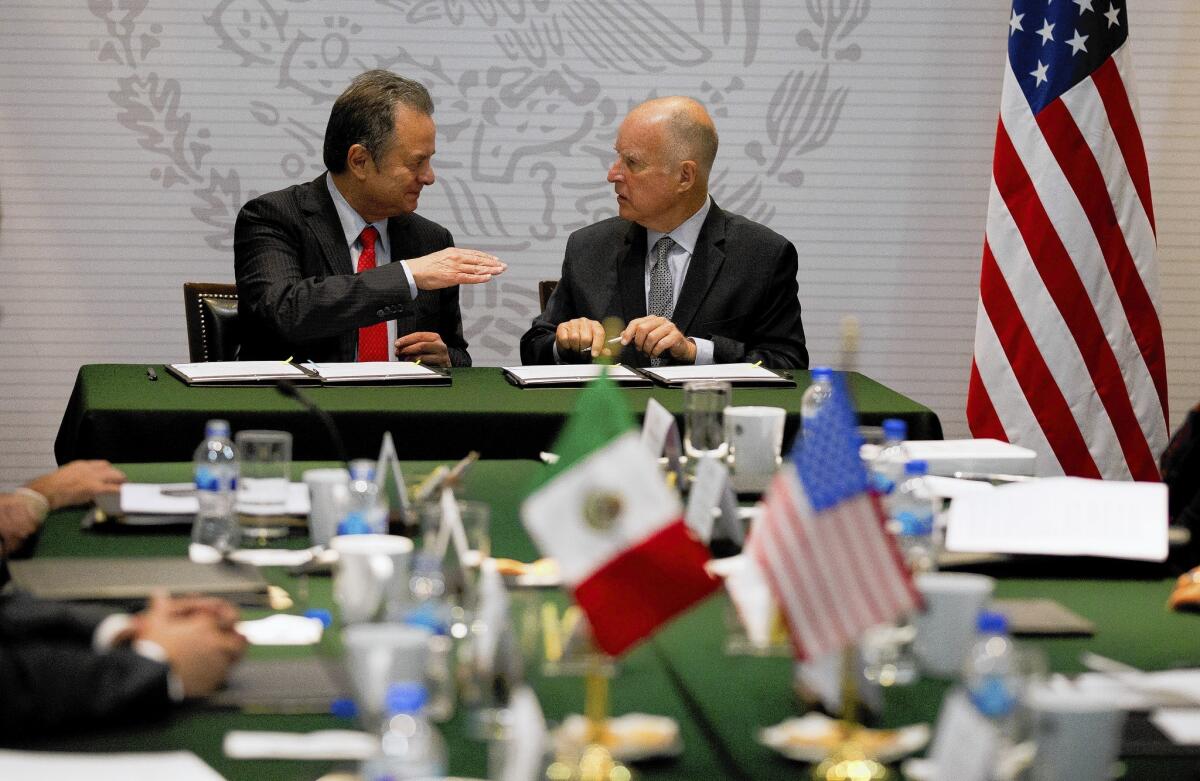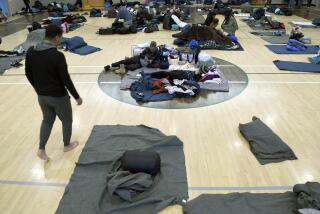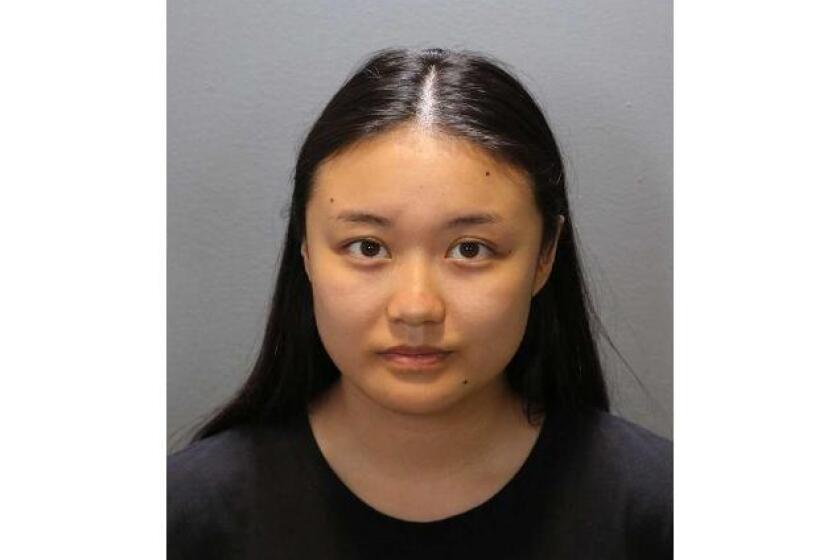Gov. Brown vows not to ignore migrant children flooding across border

Gov. Jerry Brown emerged from a meeting with religious leaders here Tuesday and stepped into one of the most controversial topics in U.S. politics, pledging support for new shelters in California for migrant children fleeing poverty and violence in Central America.
“I deliver you a commitment that this is a topic that will not be ignored in the coming months or the coming years,” he said. “Whatever can be done by a mere governor, will be done.”
He did not offer details on what he might do.
Thousands of migrants have crossed the border into the United States this year, straining government resources and inflaming political tensions. Some of the migrants are housed at a naval base in Ventura County.
The governor had said little on the issue before his trip to Mexico this week, and he struck a cautious tone Tuesday. With Congress deadlocked on an overhaul of federal immigration laws and Central American countries suffering, Brown said, there would be no easy or fast solutions.
“Wherever you look, I see obstacles and challenges,” he said. “That’s one of the reasons I’ve been hesitant to speak too glibly, because the more I get into it, the more difficult I find it.”
President Obama has asked Congress for $3.7 billion to shelter children and fast-track deportation proceedings for those who don’t quality for asylum. Although the funding request has been a tough sell, Brown sympathized with the president’s position.
“It is an excruciatingly difficult set of choices that he faces,” Brown said.
The governor also called for increased investment in Latin America, saying the migrant crisis is the result of festering problems there.
“It ought to be a wake-up call . . . that more needs to be done to improve the well-being of our neighbors,” he said.
Although Tuesday’s news conference was the first event of Brown’s four-day trade mission that was dedicated to the immigration controversy, it has dominated the trip.
In his first remarks to reporters after arriving in the country Sunday, Brown said California’s “sympathetic policy” to immigrants puts the state “in a very good position to forge very close and productive relationships” with Mexico.
On Monday, before signing an agreement on climate change, he warned of mass migrations if rising temperatures make some areas too difficult to live in.
“We can see how some are fearful of children walking across the border,” he said. “What will they think when millions of people are driven north from the parched landscape of a world degraded by intensifying climate change?”
Later in the day, he inserted the topic into a tourism marketing event, saying California wants more Mexican visitors.
“Some people are trying to keep them out,” Brown said. “And here we are, on the side of bringing more people in.”
Brown has signed legislation allowing illegal immigrants to obtain driver licenses and limiting the circumstances in which arrests by local law enforcement agencies can trigger deportation proceedings.
In an interview with The Times on Tuesday, Brown said the new laws were a logical outgrowth of the rising political power of Latinos in California.
“There has been a sea change based on a demographic and historic change,” he said. “It’s not any particular virtue that has been developed by politicians.”
Mexican politicians and media figures have heralded Brown’s trip as an antidote to what they see as anti-immigrant sentiment in the United States. They’ve been quick to contrast his response to the immigration surge with that of Texas Gov. Rick Perry, a Republican who ordered National Guard troops to the border.
Brown dismissed the deployment as a mistake, saying migrants are not “a military problem.”
Gabriel Guerra Castellanos, a television commentator and former diplomat, called Brown “the best possible ambassador to explain how better understanding, commercial flows and good-neighbor policies help a lot more than military efforts and deportations, which get us nowhere.”
Twitter: @chrismegerian
Times staff writers Tracy Wilkinson and Cecilia Sanchez contributed to this report.
More to Read
Start your day right
Sign up for Essential California for news, features and recommendations from the L.A. Times and beyond in your inbox six days a week.
You may occasionally receive promotional content from the Los Angeles Times.







